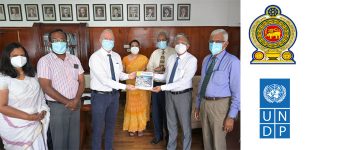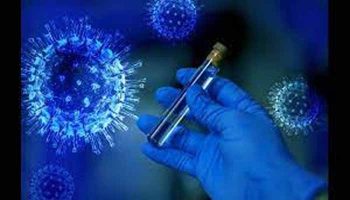Health Care Waste Management: Transforming Lives and Livelihoods

In 2019, the National Audit Report on Health Care Waste Management (HCWM) pointed out that health care waste and solid waste management is a major social and environmental challenge in Sri Lanka which needs urgent attention.
Working in 170 countries and territories, the United Nations Development Programme (UNDP), is the technical lead of the UN socio-economic response to the COVID-19 crisis, supporting countries and communities to respond and recover in a just and sustainable manner.
Informed by prior experience in responding to disease outbreaks and limiting pollutants from health care waste, UNDP in Sri Lanka at the request of the Ministry of Health (MoH) in Sri Lanka, in collaboration with the World Health Organization (WHO) and the United Nations Children’s Fund (UNICEF), conducted a rapid assessment of Health Care Waste Management in healthcare settings in Sri Lanka from August 2020 to March 2021.
To this end, the completed Rapid Assessment on Health Care Waste Management was handed over recently to Dr. Asela Gunawardena, Director General of Health Services of the Ministry of Health by Mr. Robert Juhkam, Resident Representative of UNDP in Sri Lanka at a meeting attended by Dr. V.T.S.K Siriwardana, Deputy Director General, Environmental and Occupational Health, Dr. Inoka Suraweera, Consultant Community Physician of the Environmental and Occupational Health Directorate and other representatives from UNDP Sri Lanka.
The rapid assessment found that the Ministry of Health has taken many steps for effective health care waste management in the aspects of; policy and regulation, resource allocation, standardization, establishing in-house treatment and disposal systems for health care waste management. However, several critical challenges were also identified including; a five-fold increase in clinical waste due to the pandemic situation which has overwhelmed existing limited infrastructure and resources for health care waste management, creating an additional burden on Health Care Facilities (HCFs) and the MoH to safeguard staff as well as the environment. The report also highlighted the gendered nature of health care waste management, with over 80% of sanitation workers being women, which is largely unrecognized with increased exposure to risks and solid waste contamination.
Speaking at the meeting on the importance of taking forward the findings from the rapid assessment on HCWM in Sri Lanka, Dr. Asela Gunawardena, Director General of Health Services, Ministry of Health stated, “The Ministry is grateful to UNDP for carrying out the Rapid Assessment of Health Care Waste in Sri Lanka that has led to important findings and informed the developing of the Draft National Action Plan for Health Care Waste. I commend the progress made so far on the pilot project which will help to further improve the National Action Plan, and the Ministry looks forward to UNDPs support in the finalization and implementation of this Action Plan for Health Care Waste, at this critical juncture that the country is currently facing.”
Based on the outcomes of the rapid assessment, key recommendations have been made for the consideration of all healthcare sector stakeholders. A few of the recommendations include among others; Formalizing clinical waste disposal by private practitioners including Ayurvedic treatment centers with a payment system imposed upon the waste generators; Strictly enforce the prohibition of open burning of clinical waste and introducing suitable arrangements for waste treatment at HCFs; Dedicated and appropriate budgeting for HCWM; Introducing a Management Information System on ‘Build, Operate and Transfer’ basis for HCWM; Regularizing functions and empowerment of the Infectious Control Units to streamline healthcare waste management; and awareness creation, education and certification of all categories (medical and non-medical) in HCFs (Government and private) to improve health and safety aspects of treatment facilities.
Unsound management of healthcare waste could cause “knock-on” effects on human health and the environment. COVID-19 pandemic has created quite a strain on healthcare systems in terms of healthcare waste management and Sri Lanka is no exception. Safe handling and final disposal of the waste is therefore a fundamental step in the fight against the COVID-19 pandemic and whole product sustainability life cycle.
Highlighting UNDP’s overall support through the ‘Health Care Waste Management: Transforming Lives and Livelihoods’ project, Mr. Robert Juhkam, Resident Representative of UNDP in Sri Lanka stated, “UNDP is proud to support the Ministry of Health to help pave the way forward towards sustainable waste management in the health sector in Sri Lanka, bringing both environmental and safety benefits to communities and health workers. UNDP will continue its support to the Government through Health and Environment Ministries while bringing together relevant UN agencies and stakeholders to provide a well-coordinated effort in finalizing and implementing the National Action Plan for Health Care Waste Management”
The rapid assessment and subsequent national action plan will focus on issues, amongst others, of exploring holistic waste management techniques including innovative and clean energy solution technologies in HCWM, capacity building for health care practitioners on best HCWM practices, complying with international conventions and supporting health regulatory authorities on developing and implementing data management schemes with monitoring systems.
The Rapid Assessment on Health Care Waste Management in Sri Lanka can be accessed here






